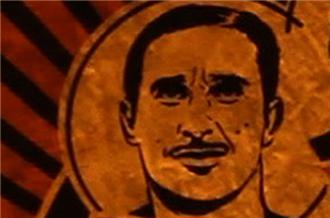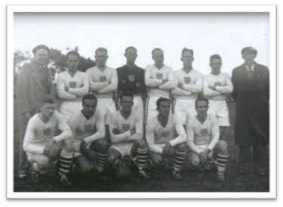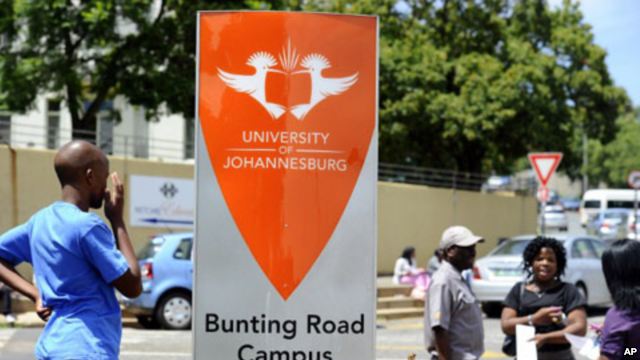 On April 13, 1958, in the midst of Algeria’s war of independence, ten Algerian professional players surreptitiously left France for Tunis. Among them was 21-year-old St. Etienne forward Rachid Mekhloufi, the central character in the second installment of the “Football Rebels” documentary on Al Jazeera.
On April 13, 1958, in the midst of Algeria’s war of independence, ten Algerian professional players surreptitiously left France for Tunis. Among them was 21-year-old St. Etienne forward Rachid Mekhloufi, the central character in the second installment of the “Football Rebels” documentary on Al Jazeera.
Through evocative interviews, archival footage, and on-camera visits to important historical sites, the documentary crafts a lively, humanistic, and emotional account of the FLN team. In tours of North Africa, the Middle East, Eastern Europe, and East Asia between 1958 and 1961, the Algerians compiled a record of sixty-five wins, thirteen draws, and thirteen losses. Playing entertaining, attacking football, the FLN side heightened international awareness of the Algerian fight against French colonialism and garnered broad support for the FLN, at home and abroad. The Algerians even sought to become part of FIFA, but the world body rejected the application.
In a highpoint of the film, Mekhloufi remembers how wearing a national uniform, flying a national flag, and singing “Kassaman” (We Pledge)–which later became independent Algeria’s national anthem–in a stadium full of ordinary fans as well as guerrillas instilled pride in him and made an imagined “Algeria” real. “What I got out of that FLN team,” says Mekhloufi in the closing moments of the film, “couldn’t have been bought with all the gold in the world.” Indeed, by putting patriotism before profit and crystallizing an emerging national identity, the FLN footballers propelled the Algerian people’s quest for equality and freedom. What an incredibly powerful story about sport and human rights. Watch, listen, and learn.
For more details about this revolutionary football team, see my post “Death of a Striker, Fighter, and Socialist” on Ben Bella and my book African Soccerscapes. Other helpful sources are Ian Hawkey’s Feet of the Chameleon, Laurent Dubois’s Soccer Empire, and, for French readers, R. Saadallah and D. Benfars’s La Glorieuse Équipe du FLN and Michel Nait-Challal’s Dribbleurs de l’indépendance.
Month: March 2013
Next month the University of Johannesburg is hosting an exciting “Research Forum on South African Football.” Organized by the UJ Department of Sport and Movement Studies, the gathering will consider three papers that address socio-historical, sociological, and developmental aspects of football in South Africa, as well as broader issues related to the local game.
In his paper “Professional Football in Apartheid South Africa: Leisure, Consumption and Identity in the National Football League, 1959-1977,” sociologist Chris Bolsmann (Aston University) will present a preliminary analysis of the NFL, a “whites-only” league established in 1959 by a group of (white) Johannesburg businessmen. Playing in segregated stadiums, the NFL introduced professional football to South Africa. At the height of its popularity, it had two divisions, attracted significant corporate sponsorship, and recruited prominent foreign players, such as George Best and Bobby Charlton. The NFL became the leisure and sporting entertainment of choice for significant numbers of black and white South Africans and was unparalleled in popularity during this period.
Ethnographer Marc Fletcher (Department of Sociology, University of Johannesburg) will explore contemporary dynamics in a paper titled “Divisions, Difference and Encounters in Johannesburg Soccer Fandom.” This ethnography of Kaizer Chiefs, Bidvest Wits, and Manchester United supporters’ clubs in the city shows how supporters on the margins of these groups began to engage with the other, crossed racial and class divisions, and thus reinterpreted their understanding of soccer fandom and their wider experiences of everyday life in the city.
Last but not least, Chris Fortuin (Department of Sport and Movement Studies, University of Johannesburg) will discuss “Youth Football Development in South Africa.” The paper notes how in South Africa there is a severe lack of focus on youth football development to sustain national junior and senior teams. I also highlights that youth football development is not coordinated, there is limited success in nurturing young players for the international market, and coach development with a specific focus on youth football is strongly lacking.
This forum takes place on April 19, 2013, 10:00-12:00 at the University of Johannesburg’s Protea Auditorium, School of Hospitality and Tourism, Bunting Road Campus, Auckland Park. For more details please contact Dr. Chris Bolsmann (chris [dot] bolsmann [AT] aston [dot] ac [dot] uk or @ChrisBolsmann on Twitter).
Drogba: The Peacemaker
Omdurman, Sudan, October 8, 2005: moments after Ivory Coast secured qualification to the World Cup finals for the first time, Didier Drogba extemporaneously transformed himself into a peacemaker. His country at the time was torn apart by a civil war between the Muslim-dominated rebel-held north and the mainly Christian south controlled by President Laurent Gbagbo’s government. Surrounded by joyous teammates in the dressing room, Drogba took the microphone and knelt in front of the television cameras. “We have proved that all Ivorians can live together,” he said, “and we can unite with the same objectives. Please, put down your weapons!”
The dressing room scene provides the emotional spark and narrative hook in “Didier Drogba and the Ivorian Civil War,” the riveting first episode of “Football Rebels,” a five-part documentary that began this week on Al Jazeera English. (Watch it here.) “It was just something I did instinctively,” the Ivorian striker would later tell Alex Hayes of The Telegraph in a 2007 interview. “All the players hated what was happening to our country, and reaching the World Cup was the perfect emotional wave on which to ride.”
The Al Jazeera documentary film reveals the little-known story of how Drogba played a key role in getting the national team, The Elephants, to play a 2008 African Nations Cup qualifier against Madagascar in Bouaké in the rebel heartland. Ivory Coast won 3-0, triggering a much needed sense of patriotic pride, national unity, and peace. (Highlights below.)
Presented by former Manchester United star Eric Cantona, “Football Rebels” focuses on players “whose social conscience led them to use their fame and influence to challenge unjust regimes, join opposition movements and lead the fight for democracy and human rights in their countries.” The next episode features another brilliant African player: Rachid Mekhloufi, who left the 1958 French World Cup team to join the FLN team aiding the cause of Algerian independence.
Orlando Pirates: The End of an Era?
Maluti FET College 4, Orlando Pirates 1. Dropped jaws and head-scratching abounded in South Africa last weekend after a third-tier side thumped the reigning league champions in the Nedbank Cup. Stunning results like this are what makes knockout competitions hugely attractive. It’s football’s David vs. Goliath narrative: a humble amateur side from an unknown backwater of the country upstaging their well-heeled city slicker brethren. Does Pirates’ stunning defeat against Maluti signal the end of an era for the fabled Soweto team?
The Buccaneers have been enjoying a purple patch for the past two seasons. An eight-year cup drought ended in 2010/11 when Dutch coach Ruud Krol guided Pirates to a three-cup haul as they annexed the MTN 8, Nedbank Cup and the league title. Krol’s success at Pirates came only after three years of perseverance. In his first season, Pirates lost the title to Supersport United on goal difference and then narrowly lost the Telkom Knockout Cup final to Ajax Cape Town. The following season the going got harder for Krol. Pirates fared badly in the knockout competitions and finished fifth in the league.
A classy defender in his heyday, Krol turned defence into a trademark of his years at Pirates. The side conceded a miserly 22, 18, and 23 goals, but also struggled up front with 37, 26, and 41 goals per campaign. Simply not good enough. The signing of Benni McCarthy (despite his advanced age and injury-prone body) dramatically improved Pirates’ attack. But at the end of a stellar season, the formerly underachieving club did not renew Krol’s contract.
In came Julio Leal. He won two trophies, but halfway through the campaign the Brazilian was booted out, his exit apparently engineered by players unhappy with his coaching methods. Head of Development, Augusto Palacios, took over the reins, steering the Bucs to a second consecutive PSL league title and treble. There would be no continuity in 2012/13, however, as Palacios made an early exit after Pirates got knocked out of the MTN 8 and then lost badly to rivals Moroka Swallows in a league match. Roger De Sa was put in charge.
Pirates’ shocking loss to the minnows of Maluti was by all accounts a major upset. The subsequent league loss to Moroka Swallows (again!) piled even more pressure on De Sa and the Bucs. Two losses in a row, however, do not constitute a crisis. It is a bad spell, a passage any team goes through in the course of a season. Pirates remain in contention for both the league title and the African Champions League. If Pirates were to win both competitions the foibles of the past few weeks would quickly be forgotten by their devoted fans, aka The Ghost. However, if such results don’t materialize, Roger De Sa will almost inevitably become the fall guy, accused of “destroying a great side.”
Truth be told, Pirates management should shoulder the blame for any such negative outcome. De Sa seems like an astute coach and for all the experience he has gained over the years, managing Pirates is his first stern challenge. But will he be given the time to build? After all, he answers to a management team that hired him as the 35th coach in 23 years. Pirates may live to rue dissembling the successful project Krol painstakingly built over the course of three years. If De Sa “fails” then an era will have ended. Humiliating losses like the one to Maluti FET College suggest that Pirates will probably continue to hire and fire many more coaches rather than repeat Krol’s recipe for success.
Rethinking American Soccer History
 The Football Scholars Forum, an online fútbol think tank, met on February 26, 2013, for a lively session on the history of American soccer. Steven Apostolov shared a paper on Massachusetts; Gabe Logan on Chicago; and Tom McCabe on northern New Jersey. David Kilpatrick, official historian of the New York Cosmos, moderated the 90-minute conversation.
The Football Scholars Forum, an online fútbol think tank, met on February 26, 2013, for a lively session on the history of American soccer. Steven Apostolov shared a paper on Massachusetts; Gabe Logan on Chicago; and Tom McCabe on northern New Jersey. David Kilpatrick, official historian of the New York Cosmos, moderated the 90-minute conversation.
Listen to the audio from the session here.
Twitter timeline here.
